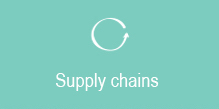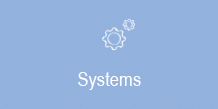21 Sep Assessment of macro-economic implications of circular business models (ESR 14)
Assessment of macro-economic implications of circular business models (ESR 14)
What are the environmental impacts of a circular economy of scale?
Previous research in sustainability and the assessment of circular scenarios by a wide number of academic and non-academic organisations, it is known that circular economy has the potential to preserve resources as well as to create and maintain economic value. At the same time, innovators, entrepreneurs, and corporations have commenced to deploy circular business models at different scales. Nevertheless, the anticipatory assessment of the environmental impacts from a lifecycle perspective of such deployments is necessary to avoid environmental burden and problem shifting. This project aims to fill this gap and assess the environmental benefits or impacts of circular business implementations at different economic and regional scales. For this purpose, it has been proposed to use a hybrid-lifecycle-assessment (hybrid LCA) method. Hybrid LCA combines the level of detail lifecycle-assessment (LCA) with robust macro-economic data like Input Output tables. To enhance the temporal resolution of these studies, we might use a dynamic approach to understand better the implications of circularity in the present and in the future.

Researcher:
Carlos Pablo Sigüenza Sánchez
Ph.D. Candidate
Leiden University, Institute of Environmental Sciences (CML), Department of Industrial Ecology

Supervisor & Promotor:
Prof.dr. Arnold Tukker
Scientific Director & Professor of Industrial Ecology, Leiden University, Faculty of Science, Institute of Environmental Sciences (CML)
Email:
tukker@cml.leidenuniv.nl






No Comments